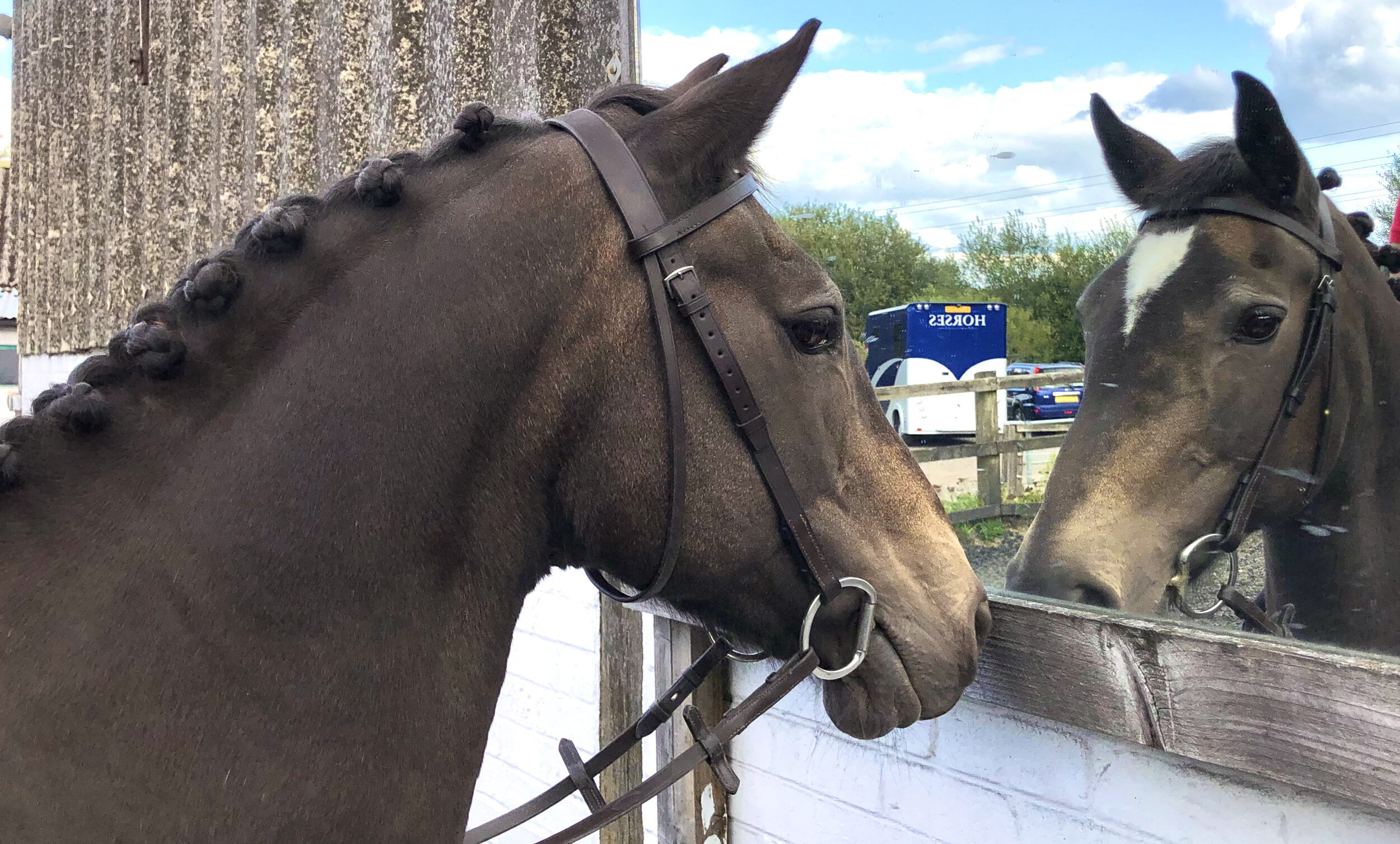

The history of At The Yard started with one horse - a mare called Chance. It was because of her the idea for At The Yard came to be and she's since starred in many of the photo's we've used over the years. Last year we noticed a change in her behaviour and Amy, her owner, writes about her experience in supporting a blind horse.

In summer 2023, I noticed Chance wasn't quite right. She was eating well and moving well, but she was quiet. I would regularly find her stood in the corner of the field gazing off into the distance. Her spark seemed dulled, and there was an air of sadness about her.
I tried to find a medical explanation. I monitored her temperature (it was normal) I checked and rechecked her for digital pulses (she didn't have any) I looked at her gums (they were fine) and recorded her heart rate, her breathing rate and anything else I could think of. Everything showed as normal.
I called the vet and asked them to come out and give her a thorough MOT and run some blood tests. The vet checked her over, trotted her up, and listened to her heart. She told me how wonderful it was to see an older horse (Chance was 30 in the spring) so well and healthy. She told me she would take bloods but didn't expect to find anything abnormal. And then she asked me when Chance lost her sight.
I was (excuse the unintentional pun!) blindsided. I know my horse. I knew there was something wrong. But never in a million years did I consider the possibility that she no longer had sight. The vet demonstrated that when you slowly lift a finger to each of her eyes, she gave no reflex. In disbelief, I tried it myself. I could almost touch her eyeball and Chance didn't seem to notice. Flummoxed, I then tried this on several other horses, all of which instantly moved their heads away in alarm when my finger appeared.
The vet advised that because Chance had probably been losing her sight for over a year, and that the recent change was probably due to the very last of her sight disappearing. It would be an adjustment but in time it was likely that she would manage very well. I made it my business to find out all I could about how to support a blind horse, and I want to share the main points that have been helpful:
After a few weeks, Chance was more comfortable walking around her field again. She got her spark back and we even continued to go out on a few rides (always with other people, as I felt going alone was asking too much of her).
I try to think of what I can do to help her more, but the truth is, most of the time you'd never even know she has no sight. She still has a canter round the field when she feels like it and can always find the right shape branch to lean against and have a good scratch.
With that said, I have seen her walk headfirst into a wheelbarrow. I've now taught her that if I shout “wheelbarrow” at the top of my lungs, it's a really good idea to stand still.